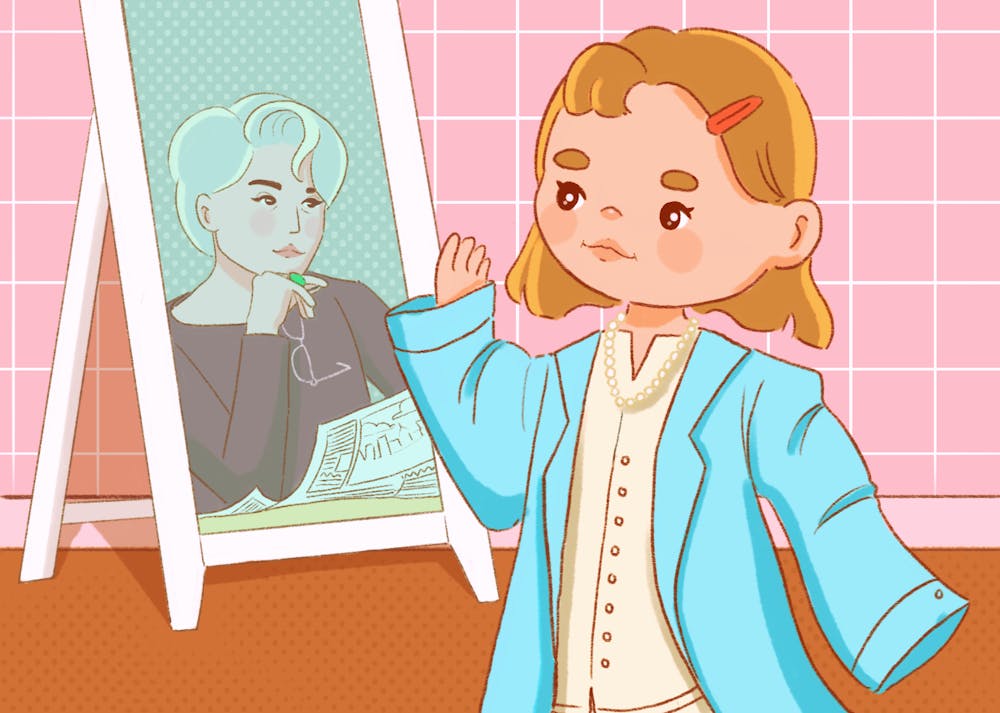"Oh, don't be ridiculous, Andrea. Everybody wants this. Everybody wants to be us," Miranda said.
As a 13-year-old watching "The Devil Wears Prada" for the first time, no truer words could have been said, and the moment Miranda Priestly entered the scene, I was in awe.
Miranda Priestly, played by the marvelous Meryl Streep, was everything I wanted to be — perhaps except for the cold-heartedness. Her undeniable power and influence in the fashion and journalism worlds seemed beyond alluring.
Inspired by these facets of the character, I felt destined to make her fictional career a reality for myself.
Beyond the specifics of our shared love for couture and writing, I admired Miranda Priestly for her high-achieving position as a woman in the corporate world.
Throughout my life, I have been introduced to an unfortunate share of disrespect and ignorance due to my gender identity. To see Miranda respected and feared in a setting and position so commonly held by men was impressive, and I wanted to garner that same reverence.
With age, I began to realize the reality of Miranda Priestly's specific job was hardly attainable. I didn't want to completely eradicate my naive dreams, but I began to shift toward a mindset of achievability — the only problem with this was where to start.
My vision was still far from clear as I entered college. I knew I wanted to be a strong figure in the corporate world, but there didn't seem to be a major titled "chief executive officer" on the list. The truth of the matter was there wasn't a straight shot to the penthouse office — I'd have to put an immense amount of time and effort in climbing the executive ladder to get there.
When looking at the facts and figures, I now understand my idolization of Miranda Priestly as a corporate woman even more.
A 2019 survey from the Forté Foundation shows an estimated 39% of MBA program students are women. Likewise, the Status of Women in U.S. Media 2019 report shows women make up roughly 42% of newsrooms.
Although these statistics show progression from years past, they still fail to meet a balance, and don't necessarily take into account the harassment and prejudice against women that can occur.
The need for diversity and a widespread range of viewpoints is more prevalent now than ever with a constantly changing and learning world — women in business and media should be part of that change.
By inspiring a generation of women to fulfill these high-achieving roles, the creation of a new cultural norm can begin. Leading by example and learning through visualization are both powerful methods of changing the environment surrounding us.
The stigma of female leaders being dramatic and irritable will disappear through the creation and consumption of media that normalizes women in charge. With this action, a more confident and determined workforce can be fostered, slowly eliminating the causes of unfair treatment.
It is a sad truth that sometimes women need extra determination and dedication to be taken seriously.
But, if Miranda Priestly taught me anything, it was that your heart and soul must be invested in your success, regardless of the failures that may occur.
I still don’t know exactly where I'll end up in the world of employment. Whether I achieve my childhood goal of fashion editor in chief or not is still a mystery, and I'm OK with that.
Becoming a leader is something that takes persistence and commitment, regardless of one's gender. Although I'm still figuring out what my future holds, I believe that finding inspiration in others is a good place to start.
Regardless of any corporate editor dream I may have, I plan to heed Miranda's message of never settling for less and taking advantage of every opportunity possible. Not knowing what the future holds is one thing, but having no faith in the future will surely deteriorate any chance of success.
In the words of Miranda Priestly, "There's no one who can do what I do." I may not become the next of her kind, but I will be the first of my own.
Reach the reporter at jecote@asu.edu and follow @jillianecote on Twitter.
Like The State Press on Facebook and follow @statepress on Twitter.
Continue supporting student journalism and donate to The State Press today.




